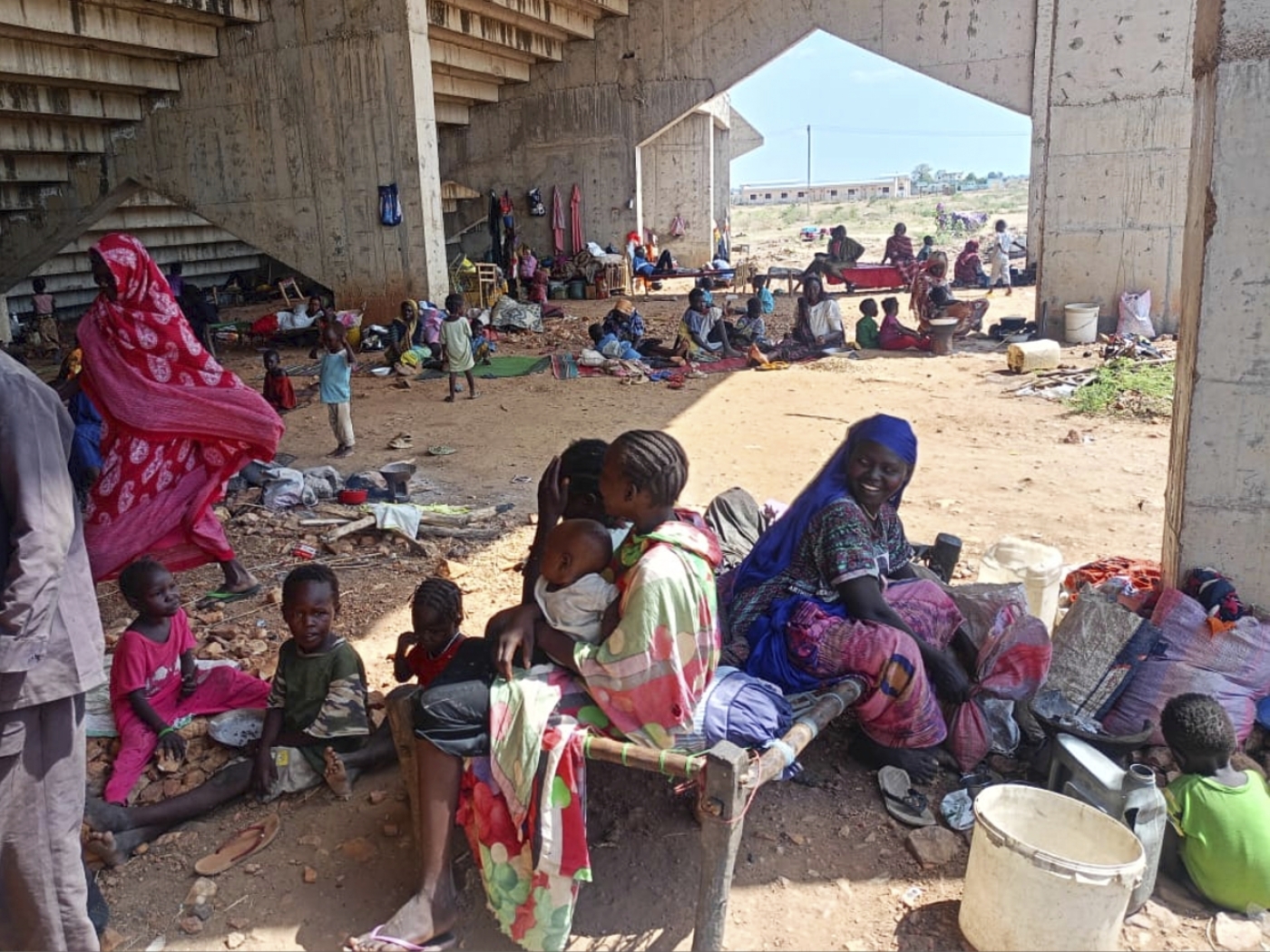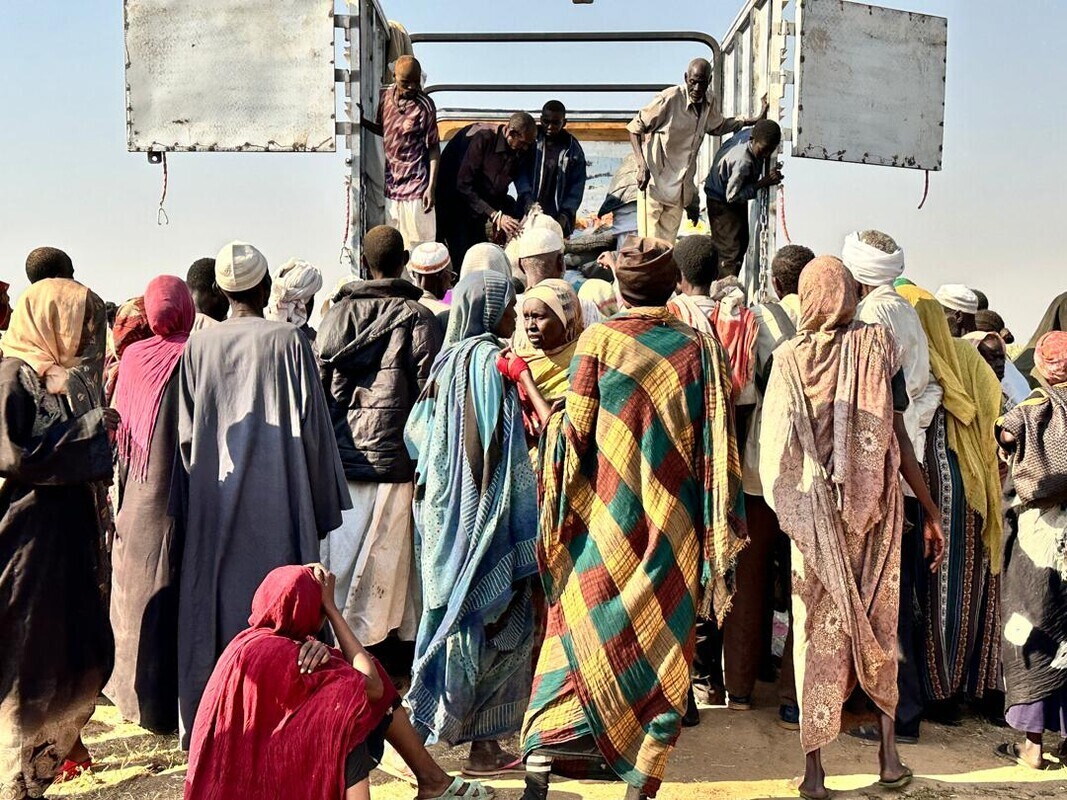
UN denounces ‘gravest of crimes” in Sudan’s el-Fasher region

The United Nations has denounced serious war crimes still being committed in the Sudanese town of el-Fasher, which has been controlled for several weeks by paramilitaries. It said on Friday in Geneva that these atrocities were foreseeable and avoidable.
+Get the most important news from Switzerland in your inbox
“My office has published more than 20 declarations on el-Fasher in one year,” said UN High Commissioner for Human Rights Volker Turk at the start of a special session of the Geneva-based UN Human Rights Council on Friday.
Attacks on el-Fasher by the Rapid Support Forces (RSF) “subjugated” the population, even before the recent massacres, he added.
“We have been alerted to the spread of the famine,” said Türk. He said the capture of el-Fasher had led to a blood bath and cited massive civilian executions, ethnic violence, sexual abuse and even attacks on ranchers and infrastructure. Millions of people have been killed.
+ Impunity is stalling all peace efforts in Sudan. Can it end?
“It’s a model that we have been documenting again and again in this conflict” for more than two years, he said. Türk said states lacked commitment to tackle this situation.
The High Commissioner called on influential countries to guarantee the protection of the population in el-Fasher and in the region and the provision of humanitarian aid. The states must also ensure that the perpetrators are prosecuted and that the embargo on arms is applied.
Meeting supported by Switzerland
The International Criminal Court (ICC) is closely following the situation and has estimated that possible crimes against humanity have been committed. “We are looking at you,” Türk told the parties to the conflict.
He repeated his concern about the possibility of atrocities in the Kordofan region outside Darfur. According to a member of the International Fact-Finding Mission for the Sudan, Mona Rishmawi, “the famine is beginning to arrive” in this region and could lead to a “new el-Fasher “.

More
Switzerland joins calls for humanitarian protection in Sudan
The Geneva special session was supported by 23 members, including Switzerland, and more than 30 observers. It takes at least three of the 47 countries of the US body to be able to organise it.
A draft resolution to be discussed at the Geneva meeting envisages a “final condemnation” of the increase in violations and indications of atrocities committed by the RSF in el-Fasher. It also categorises violations of international humanitarian law (IHL) such as ethnic executions, torture, summary executions and the arbitrary detention of civilians.
It also raises concerns about the situation of the 200,000 civilians who are still imprisoned in el-Fasher and the 70,000 people who have been able to flee to neighbouring villages. All of them remain exposed to sexual violence and a lack of food and water. Several thousand women have been violated, according to information relayed by the fact-finding mission.

More
As Sudan’s agony deepens, scrutiny sharpens on UAE and gold
UAE accused
The resolution project also calls for an urgent investigation into the recent violations in el-Fasher and the region by all parties. This is what the Sudanese authorities, who want it to focus only on the paramilitaries and who denounced last night “the lack of pressure” on the RSF to prevent a “genocide”, are asking for. The mission must also identify the individuals responsible for the atrocities.
It has estimated on several occasions in the past that the RSF had committed acts equivalent to crimes against humanity. It has accuses the army for the war crimes alleged.
The draft resolution also calls on all external actors to refrain from arming the parties to the conflict. The United Arab Emirates (UAE) are regularly accused of supplying the RSF in violation of the embargo decided by the UN Security Council. They reject the allegations.
On Tuesday, the UAE ambassador confirmed to UN Geneva correspondents (ACANU) that neither the army nor the paramilitaries “should control the future of Sudan or have a role”. The UAE wants the transition to civilian authorities and for the special session to place “the protection of civilians” and humanitarian access at the centre of the discussions. We must sort out the conflict,” said the ambassador.
Since the beginning of the war, dozens of millions of people have been killed. The conflict has left around 13 million displaced, including four million refugees. According to estimates, more than 21 million people are facing serious food insecurity. More than 206,000 are facing famine. Dozens of millions of individuals need help.
Translated from French by DeepL/sb
We select the most relevant news for an international audience and use automatic translation tools to translate them into English. A journalist then reviews the translation for clarity and accuracy before publication.
Providing you with automatically translated news gives us the time to write more in-depth articles. The news stories we select have been written and carefully fact-checked by an external editorial team from news agencies such as Bloomberg or Keystone.
If you have any questions about how we work, write to us at english@swissinfo.ch

In compliance with the JTI standards
More: SWI swissinfo.ch certified by the Journalism Trust Initiative































You can find an overview of ongoing debates with our journalists here . Please join us!
If you want to start a conversation about a topic raised in this article or want to report factual errors, email us at english@swissinfo.ch.